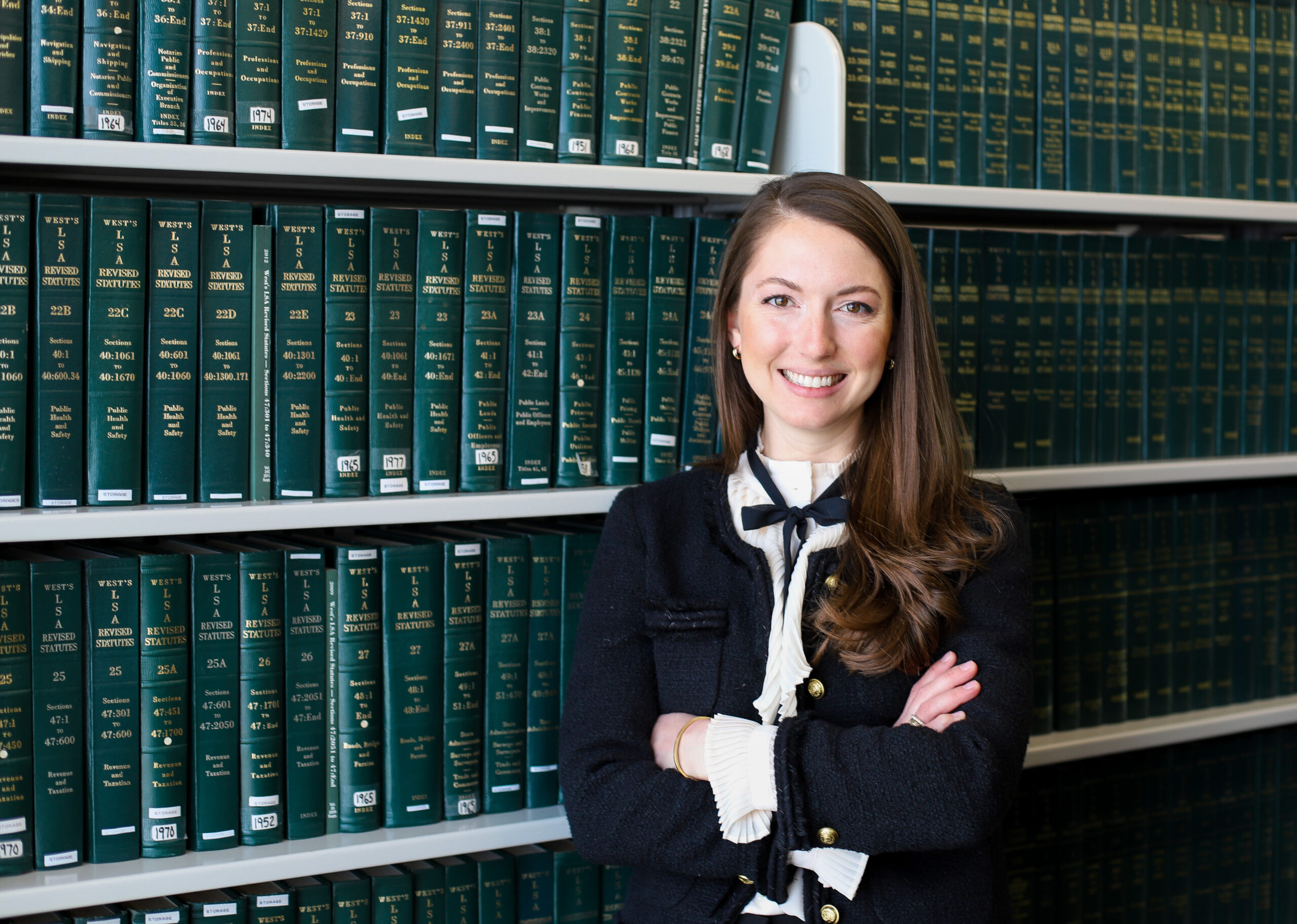 With an undergraduate degree in engineering and four years working as a civil engineer under her belt, shifting to the book-heavy world of law school was a bit of a challenge for Jessi Maupin. But her STEM background gave her some big advantages—how to think analytically and problem-solve, and the niche skills and education needed to take the patent bar exam and pursue an in-demand career in intellectual property law.
With an undergraduate degree in engineering and four years working as a civil engineer under her belt, shifting to the book-heavy world of law school was a bit of a challenge for Jessi Maupin. But her STEM background gave her some big advantages—how to think analytically and problem-solve, and the niche skills and education needed to take the patent bar exam and pursue an in-demand career in intellectual property law.
As an engineer, Maupin had gotten used to working with her hands, which is why she was so drawn to experiential learning opportunities in law school. A combination of moot court experiences, research opportunities, internships, and more hands-on learning helped her make the most of her time at the S.J. Quinney College of Law.
“Experiential learning helps people learn how to present themselves in a work environment and how to communicate with attorneys and judges,” she said. “These soft skills can’t be learned from doing a reading or writing a paper. You don’t really know what it’s like until you get there and you’re actually doing it.”
Maupin started off strong and didn’t wait for opportunities to come to her—she sought them out herself. Professor Jorge Contreras was her Property Law teacher, and knowing he was heavily involved in her desired field of IP law, she reached out to him to see if they could collaborate on a research project. Contreras helped her dive into an IP topic of interest to both of them. Their research project spanned several semesters and is now being submitted for publication.
“I think this opportunity to do research directly with a professor is a great example of the wonderful opportunities at SJQ that perhaps aren’t as readily available at other law schools,” she said. “I love that our school has smaller class sizes because I think it allows students to develop individual relationships with professors and engage in individualized learning opportunities with them.”
Maupin has also competed and excelled on several moot court teams during her time at the S.J. Quinney College of Law, gaining public speaking and legal writing skills along the way.
“I absolutely loved moot court,” Maupin said. “Figuring out how to formulate an answer to questions on the spot is such an important skill for lawyers. You can be told how to do it, but I think that skill really develops once you actually do it and have the opportunity to mess up a couple of times.”
During her 2L year, she excelled at the Traynor Moot Court Competition along with teammates Tamara Lemmon and Laura Kent-Jensen—so much so that they were asked to join the National Moot Court Team the following year. Maupin received the rank of Best Speaker during the Traynor Moot Court Competition, highlighting her excellent poise and presentation skills.
She also competed on the Giles Sutherland Rich Memorial Moot Court (along with teammate Brady Nash) and received the award for Best Brief. This competition focuses on intellectual property law, a fitting experience, as she plans to pursue IP work after graduating.
Maupin also used internships to help round out her education and help prepare for her career. She spent two summers interning for the law firm Kirton McConkie, giving her valuable insights into litigation and intellectual property law.
During the first semester of her 3L year, Maupin spent time interning for Utah Supreme Court Justice John Pearce. With the heart of Salt Lake City and the court system just a few short train stops away from the S.J. Quinney College of Law, Maupin was able to fit this internship into her busy law school schedule. She would research cases, write bench briefs, share her own thoughts and opinions on the law, and provide any additional information she thought Justice Pearce might need for his cases.
“It was so neat to be exposed to what judges actually do and the inner workings of the court system,” she said. “I feel like Justice Pearce really gave us the opportunity to dive in. He would help talk us through any questions we had, and he was never dismissive of our thoughts or ideas.”
After graduation in May, Maupin will move to Texas to join the IP litigation group at the law firm McGuireWoods. She hopes to pave the way for more women in IP law.
“During my class’s orientation week, I was so pleasantly surprised to meet more than a handful of women in STEM!” she said. “On the flip side, every IP law firm that I’ve interviewed or visited with is predominantly made up of men. Hopefully, law school classes like ours with so many fantastic women in STEM will be the start of more women finding a career in IP law.”
